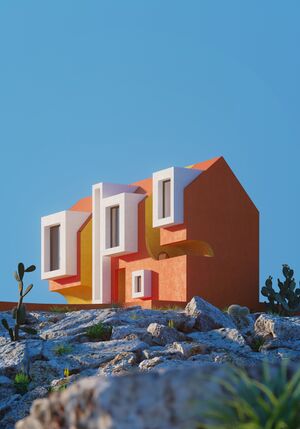User:Kendal/Year 2: Difference between revisions
(→IDEA) |
|||
| Line 5: | Line 5: | ||
With areas of the internet resembling the impoverished wastelands of an Andrea Arnold film, can we turn these spaces into temporary autonomous zones?<br><br> | With areas of the internet resembling the impoverished wastelands of an Andrea Arnold film, can we turn these spaces into temporary autonomous zones?<br><br> | ||
Obsolete platforms & forgotten websites as publishing moments. Subverting the intended use (hello affordance)<br> | Obsolete platforms & forgotten websites as publishing moments. Subverting the intended use (hello affordance)<br> | ||
Many virtual spaces/worlds were created to accommodate some of the social issues that arised from COVID. These hangouts are as much as abandoned when society reopens. However, they still are taking up space in a server somewhere. What if we could squat them?<br><br> | Many virtual spaces/worlds were created to accommodate some of the social issues that arised from COVID. <br> These hangouts are as much as abandoned when society reopens. However, they still are taking up space in a server somewhere. What if we could squat them?<br><br> | ||
Did categorisation & modernisation of the internet create these abandoned places? Can we make them into digital utopias?<br> | Did categorisation & modernisation of the internet create these abandoned places? Can we make them into digital utopias?<br> | ||
Revision as of 16:11, 14 September 2021
Project Ramblings.
IDEA
In a culture of hypercategorisation, what can become of the forgotten spaces of the internet?
With areas of the internet resembling the impoverished wastelands of an Andrea Arnold film, can we turn these spaces into temporary autonomous zones?
Obsolete platforms & forgotten websites as publishing moments. Subverting the intended use (hello affordance)
Many virtual spaces/worlds were created to accommodate some of the social issues that arised from COVID.
These hangouts are as much as abandoned when society reopens. However, they still are taking up space in a server somewhere. What if we could squat them?
Did categorisation & modernisation of the internet create these abandoned places? Can we make them into digital utopias?
THEMES
obsolete internet | hypermodernisation | hypercategorisation | virtual space | subversion | simulation | temporary autonomous zones | architectura; planning | physical vs digital
WATCH
World on a Wire Dialogues is a joint project by the online platform Rhizome (New York) and Garage Digital, featuring conversations with artists about the implications of simulation practices in digital art.
Part of Assuming Distance: Speculations, Fakes, and Predictions in the Age of the Coronacene by Garage Digital (Moscow)
[Part 1]
LOOK
Present Continous
Assuming Distance: Speculations, Fakes, and Predictions in the Age of the Coronacene
Sonara Art VIllage - Mary and Davit Jilavyan
Andrea Gruetzner (Photographer)
READ
Walled Garden - Annet Dekker
The School of Missing Studies - Sandberg Instituut
Sorting Things Out - Bowker & Star
Temporary Autonomous Zone - Hakim Bey
Delusive Spaces - Eric Kluitenberg
Book of Imaginary Media - Eric Kluitenberg
Residual Media - Charles Acland
Social Furniture - EOOS
Networks Without a Cause - Geert Lovink
Synthetic Worlds - Edward Castranova
To Mend a Broken Internet, Create Online Parks - Eli Pariser (WIRED)
Public Space // The Internet: Public Embodiment of Digital Cultures - Elizabeth Anne Hampton

